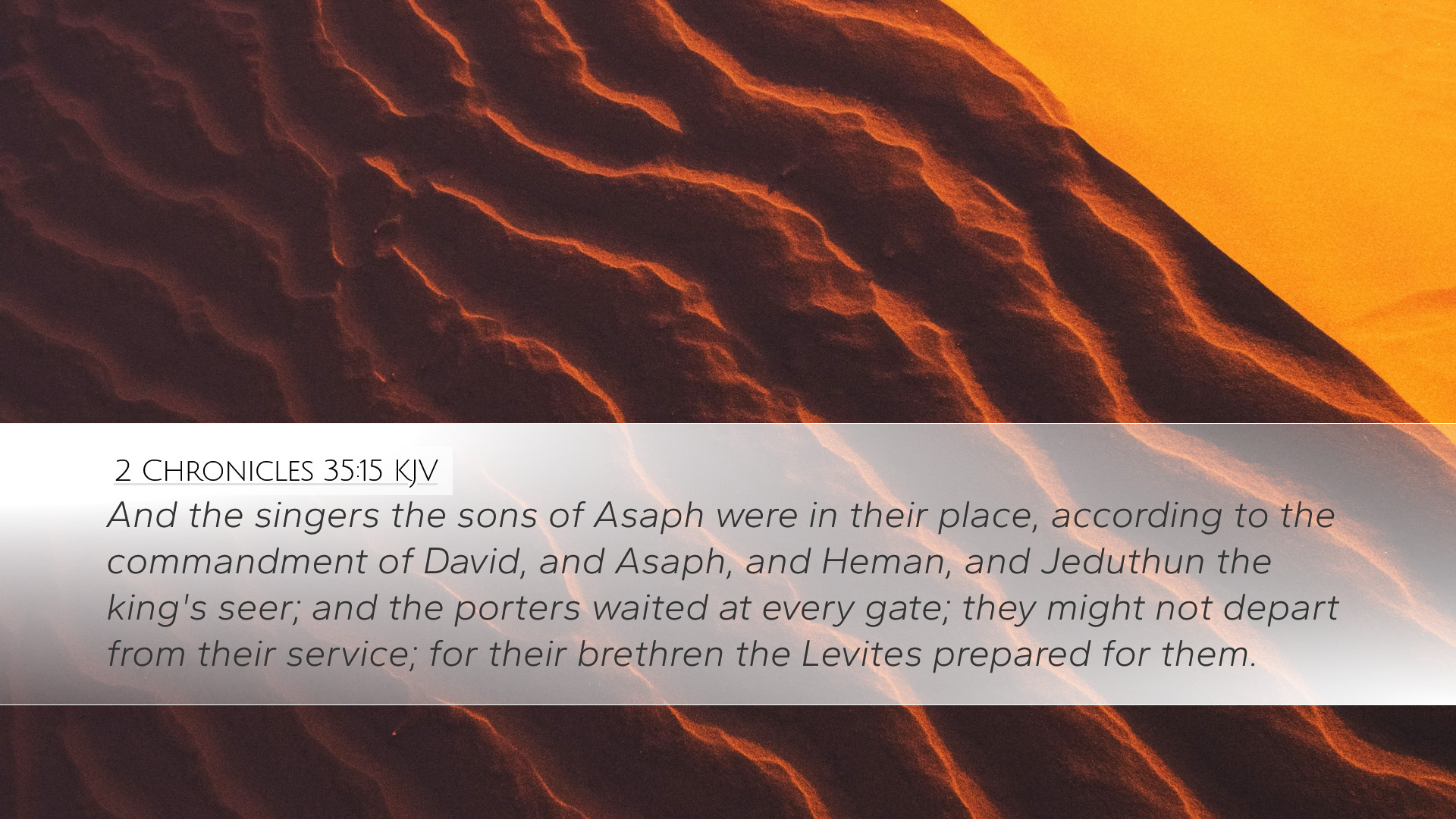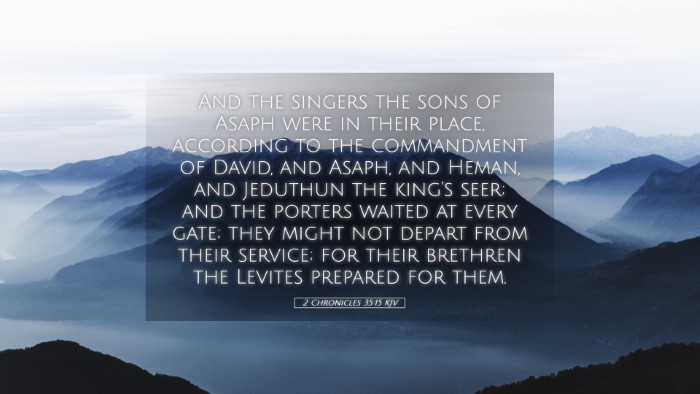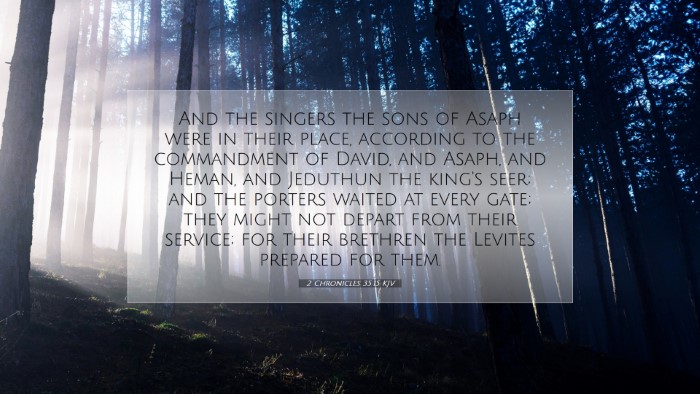Commentary on 2 Chronicles 35:15
Verse: "And the singers, the sons of Asaph, were in their place, according to the commandment of David, and Asaph, and Heman, and Jeduthun the king's seer; and the porters waited at every gate; they might not depart from their service; for their brethren the Levites prepared for them."
Introduction
This verse encapsulates a significant moment during the celebration of the Passover under King Josiah's reign, illustrating the organized worship practices established by David and carried forward by Josiah. It highlights the roles of singers and porters within the temple service, emphasizing the importance of music and order in worship.
Historical Context
The observance of Passover was a vital part of the Jewish calendar, a remembrance of the Exodus from Egypt. Under Josiah, who was noted for his reforms and devotion to restoring proper worship, the celebration was conducted with great care and attention to detail, reflecting a return to true worship practices as laid down by earlier leaders.
Insights from Matthew Henry
Organization of Worship: According to Matthew Henry, this verse exemplifies the meticulous organization that characterized worship in the temple. The arrangement of singers and porters reflects an understanding that worship must be conducted decently and in order (1 Corinthians 14:40).
Role of Singers: The sons of Asaph were key figures in the worship service, responsible for leading the congregation in praise. Henry notes that the inclusion of their roles underscores the value placed on worship through music, which serviced both the glorification of God and the edification of the people.
Insights from Albert Barnes
Davidic Legacy: Albert Barnes emphasizes how Josiah adhered closely to the directives given by King David regarding worship. The mention of Asaph, Heman, and Jeduthun connects the worship practices of Josiah's time to the rich heritage of Israel's musical tradition.
Commitment to Service: The porters representing every gate were committed to their duties and served without interruption. Barnes points out that their role was crucial in maintaining order and security within the temple, which parallels the spiritual vigilance required in our worship today.
Insights from Adam Clarke
Spiritual Significance: Adam Clarke elaborates on the spiritual ramifications of the structure and order outlined in this verse. He suggests that the roles assigned within the context of worship reflect broader theological themes of God’s holiness and the necessity of reverence in His service.
The Levites' Preparation: Clarke highlights that while the singers and porters had designated tasks, the Levites' role of preparation emphasized the communal aspect of worship. Each member’s contributions were essential to the functioning of the whole, reminding us of the importance of teamwork in ministry.
Theological Implications
This passage illustrates profound theological reflections on the nature of worship and service in the life of the community. Each role, from the singers to the gatekeepers, represents a facet of the body of Christ, united in serving the Lord. The attention to detail and adherence to traditions serve as a reminder that worship is to be approached with seriousness and respect.
Application for Pastors and Leaders
- Emphasize Order and Reverence: Just as Josiah organized the observance of Passover, pastors today should strive to maintain order in church services to honor God and edify the congregation.
- Encourage Participation: Engage various members of the congregation in worship roles, as every individual’s contribution is valuable to the spiritual life of the church.
- Uphold Traditions with Care: While new methods can be beneficial, maintaining a connection to historical worship practices can ground today’s worship in rich biblical heritage.
Conclusion
2 Chronicles 35:15 serves as a poignant reminder of the rich tradition of worship in Israel, revealing insights on organization, commitment, and the importance of each role in the collective worship of God. The reflections from esteemed commentators such as Matthew Henry, Albert Barnes, and Adam Clarke help us appreciate the depth of this verse, equipping pastors, theologians, and students to lead worship with integrity and reverence.


